How Stress Secretly Affects Your Health
People often underestimate stress, which is a silent companion. Though short-term stress can be quite a motivator, chronic stress silently undermines good health, creating problems in every central system in the body. Stress influences a person’s mind and flesh, from cardiovascular strain to digestive disturbances and hormonal imbalance.
Understanding the effect of stress on your body is the first step in taking control. You can prevent the harmful effects of stress with practical ways to protect your health. Let’s explore the science behind stress and some holistic solutions to restore balance.
Stress and the Cardiovascular System
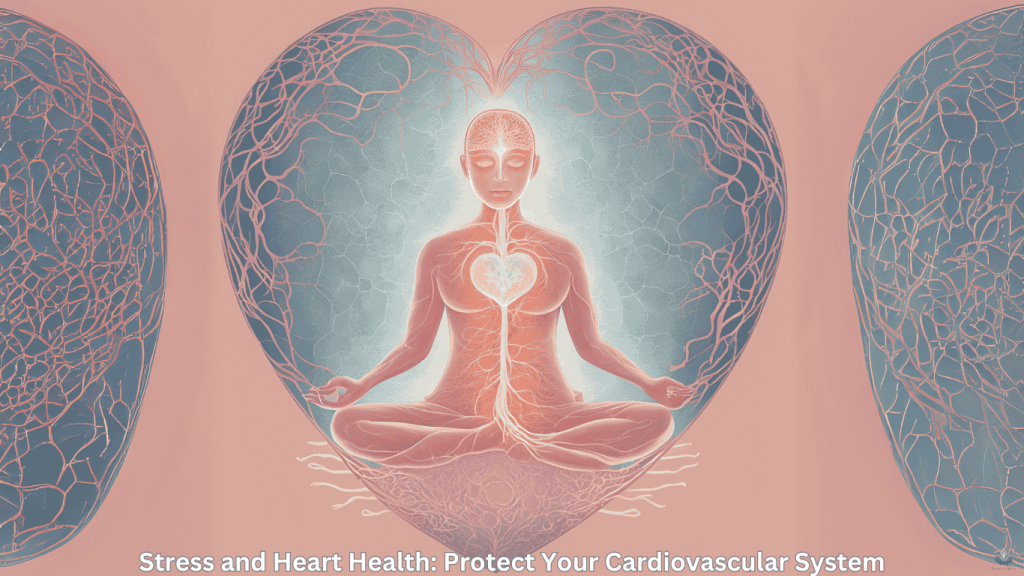
Your heart and blood vessels are susceptible to stress. When stress occurs, your body prepares to fight or flee. Your body releases adrenaline and cortisol to gear you up for immediate action by raising your heart rate and blood pressure.
Key Impacts:
- Persistent hypertension (high blood pressure) damages blood vessels and the heart.
- Chronic inflammation significantly speeds up the process of plaque buildup in arteries, promoting heart attacks and strokes.
- Chronic stress aggravates the condition of the cardiovascular system.
Case Study:
This ground-breaking study was the basis for the theory that “people under chronic stress were 40 percent more likely to contract cardiovascular disease compared with their low-stress brethren,” according to the American Heart Association.
Action Plan:
- Practice stress-reducing breathing techniques, such as the 4-7-8 breathing method:
- Inhale deeply through your nose for 4 seconds.
- Pause for a brief moment, then inhale again for 7 seconds. Exhale through your mouth for 8 seconds.
- Eat heart-healthy foods: fatty fish, nuts, avocados, and leafy greens.
- Do at least 30 minutes of daily aerobic exercises like brisk walking, swimming, and stretching your body.
Stress and the Immune System
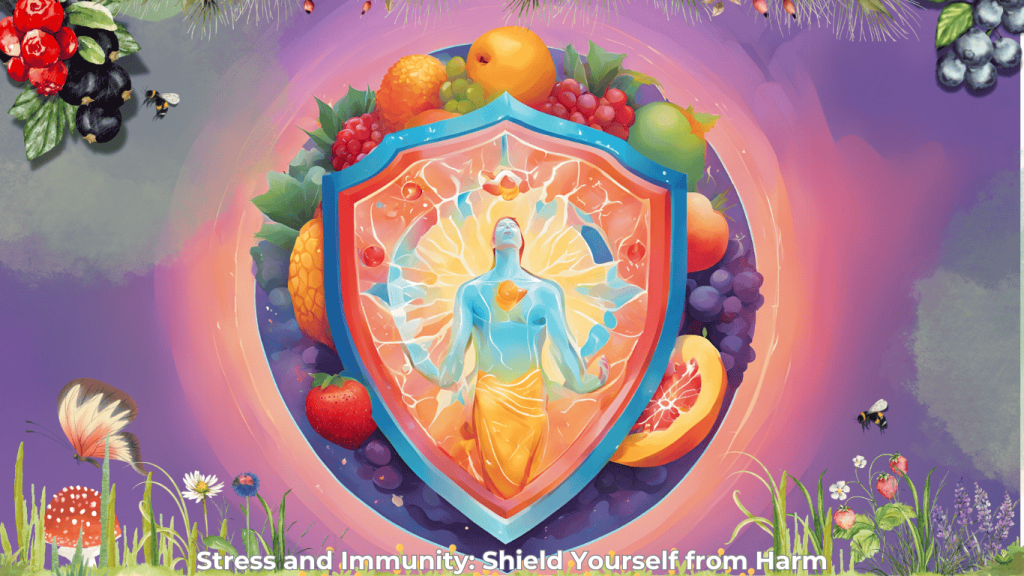
Chronic stress saps energy and weakens the immune system, making people more prone to illnesses and slowing their recovery. Stress suppresses the production of lymphocytes, white blood cells that fight infection.
Key Impacts:
- Reduced immune function increases vulnerability to common colds, flu, and other infections.
- Wounds take longer to heal when the immune system is not working well.
- There is a heightened likelihood of developing autoimmune diseases due to the interference that constant stress creates in the functions of the immune system.
Research Insight:
One study published in the Journal of Psychosomatic Research found that Alzheimer’s caregivers, who can experience chronic stress, responded with significantly weaker immune responses to vaccines compared to their less-stressed counterparts.
Action Plan:
- Get plenty of sleep every night, trying to get 7 to 9 hours of rest. It allows your body to recover and feel great.
- Boost your immune system with citrus fruits, berries, almonds, and fatty fish.
- Laugh more! Various studies have found genuine laughter lowers stress hormones and strengthens the immune system’s performance.
Stress and Gut Health
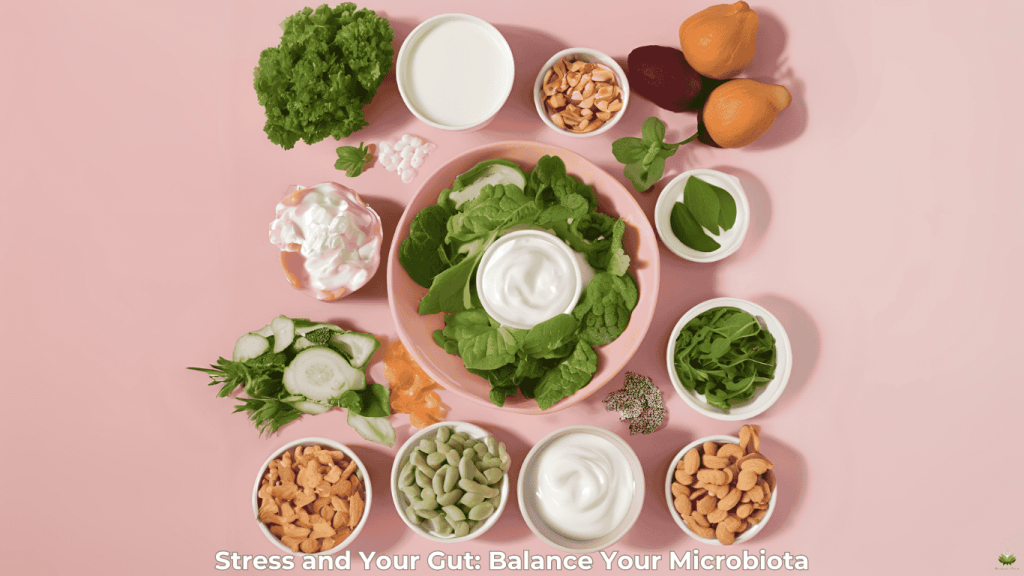
The association between your brain and gut is enormous. Stress disrupts the balance, causing digestive discomfort and long-term health issues.
Key Impacts:
- There has been a rise in symptoms associated with irritable bowel syndrome (IBS) and heartburn.
- A change in the gut microbiota could affect digestion, immunity, and even mental health.
- Increased risk of ulcers because of the release of more stomach acid.
Research Insight:
For example, an article in the Journal of Gastroenterology recently discovered that patients with chronically stressful life situations are 30% more anxious about their symptoms of IBS than those who do not have stress.
Action Plan:
- Support your gut by consuming probiotic-rich foods like yogurt, sauerkraut, and kefir.
- Avoid foods that trigger stress-related gut issues: caffeine, spicy foods, and alcohol.
- Practice progressive muscle relaxation—a technique that releases overall body tension and aids digestion.
Stress and Hormonal Balance
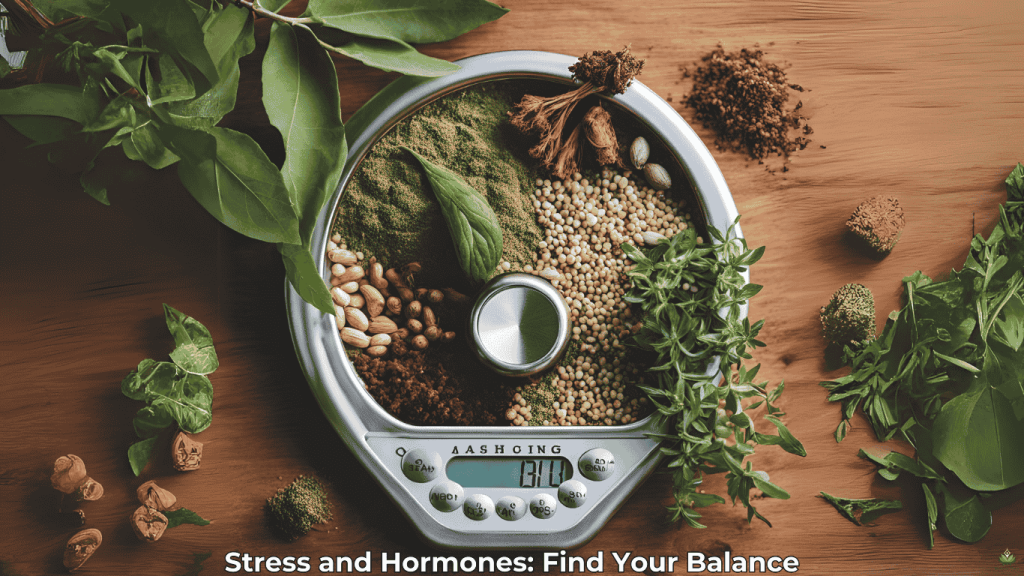
Chronic stress seriously damages the endocrine system, which produces hormones. The hormonal imbalance caused by stress can affect mood, metabolic rates, and energy levels.
Key Impacts:
- When our bodies generate a high amount of cortisol, a hormone, we can gain weight, particularly around the belly area.
- Adrenal fatigue may also manifest as chronic fatigue with reduced productivity.
- The disruptions in blood sugar levels heighten the vulnerability to diabetes.
Action Plan:
- Balance blood sugar levels with fiber-filled foods such as oatmeal, quinoa, and fresh vegetables.
- Add some adaptogenic herbs like ashwagandha and rhodiola to balance your stress hormones.
- Instead, do moderate exercise instead of extreme workouts, as overtraining can increase cortisol even more.
Stress and Oxidative Damage

Stress does not heat your body more than in that moment. It triggers oxidative stress that causes long-term cellular damage, makes you prematurely age, and can contribute to several chronic conditions.
Key Impacts:
- As we age more quickly, we may notice more wrinkles, and our organs might not work as well. It can make it harder for our bodies to heal themselves. Additionally, there is a greater chance of developing brain diseases, such as Alzheimer’s disease.
Action Plan:
- Eat many foods rich in antioxidants, such as blueberries, spinach, dark chocolate, and green tea.
- Keep your body hydrated to help flush out toxins and reduce oxidative damage.
- Avoid smoking and excess consumption of alcohol because these promote the production of free radicals.
Stress and Chronic Inflammation
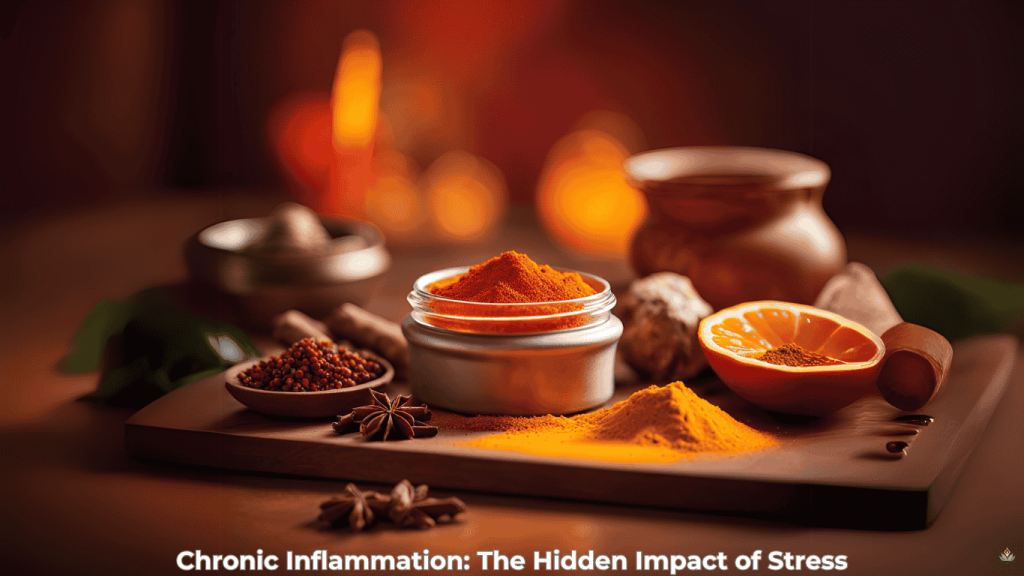
One of the most insidious effects of stress is chronic inflammation, which keeps your body in a constant state of alarm and can eventually lead to serious health ailments over time.
Key Impacts:
- The chances of the development of autoimmune disorders such as rheumatoid arthritis also increase.
- Deterioration in insulin resistance paves the way for the development of type 2 diabetes.
- There is a higher chance of getting brain conditions like Parkinson’s and Alzheimer’s.
Case Study:
According to a study published in Nature Immunology, chronic stress dampens the body’s inflammation-limiting function, giving way to chronic inflammatory responses.
Action Plan:
- Control inflammation naturally with the help of turmeric, ginger, and cinnamon.
- Consider maintaining a gratitude journal in which you record three things you’re thankful for daily. This simple practice can help improve your overall well-being and health.
- Establish a bedtime routine for deep, restorative sleep.
Holistic Strategies to Combat Stress
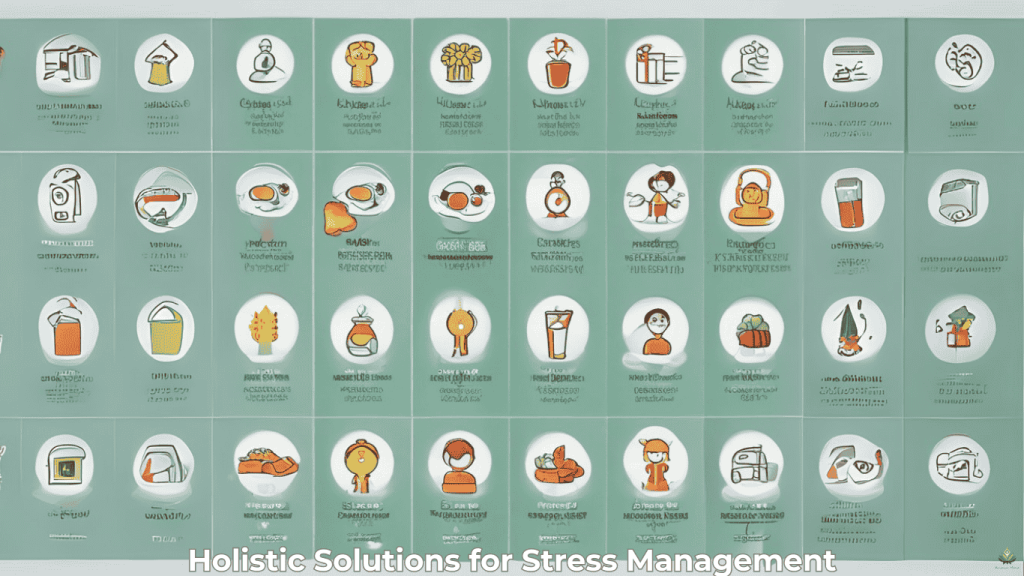
Coping with stress has to be handled multi-dimensionally. Here is how one can get started:
1. Mindfulness Practices:
-Practice meditation or deep breathing daily for 10–15 minutes.
-Try the box breathing technique: Inhale for four seconds, pause for four, exhale for four, and pause for another four.
2. Nutritionally Balanced:
-Build your meals with lean proteins, whole grains, and healthy fats.
-Try snacking stress-releasing options such as nuts, seeds, and dark chocolate when you are urged to eat.
3. Physical Activity:
- Make exercise fun: enjoy dancing, hiking, or swimming activities.
- You can combine cardio with restorative practices, such as yoga or tai chi, for maximum stress relief.
4. Energy Healing:
- Try the Emotional Freedom Technique -Tapping to release emotional stress.
Key Takeaways
The truth is that stress strikes deep into the root of every central body system: the heart, immune system, gut, and hormones. When this gets out of hand, severe morphing occurs, which in most cases ends up dire with cardiovascular diseases, autoimmune disorders, and diabetes. Mindfulness, proper nutrition, regular movement, and energy-healing practices prevent this.
Call to Action:
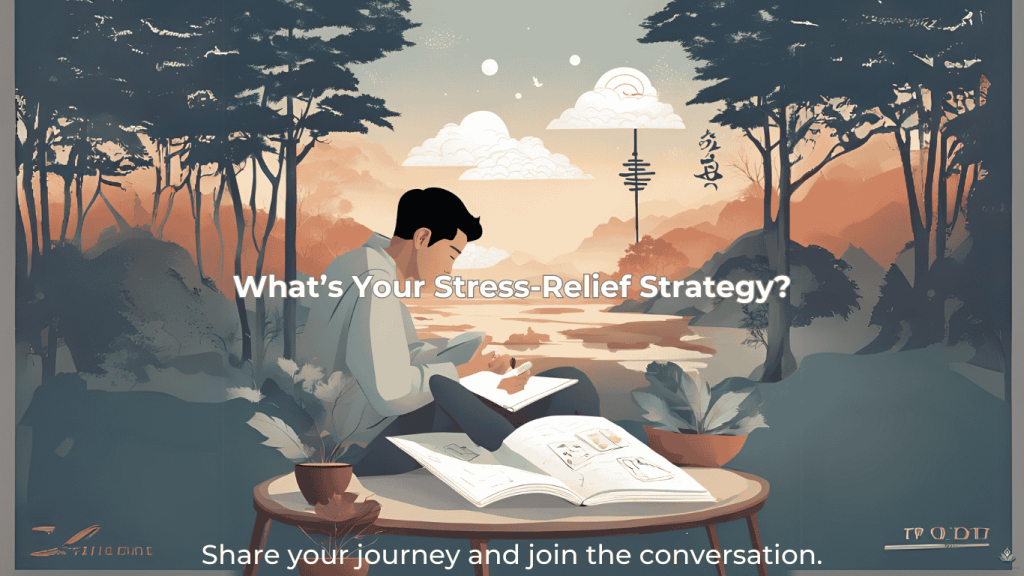
Stress is unavoidable, but its ill consequences need not be. What is your way of kicking the stress away? We’d love to hear your thoughts and experiences! Please share them in the comments section below. For more information about Holistic wellness, you can follow @holisticalmetod on Instagram.
Angel Dimitrov. (2024). Holistical Method. https://holisticalmethod.com